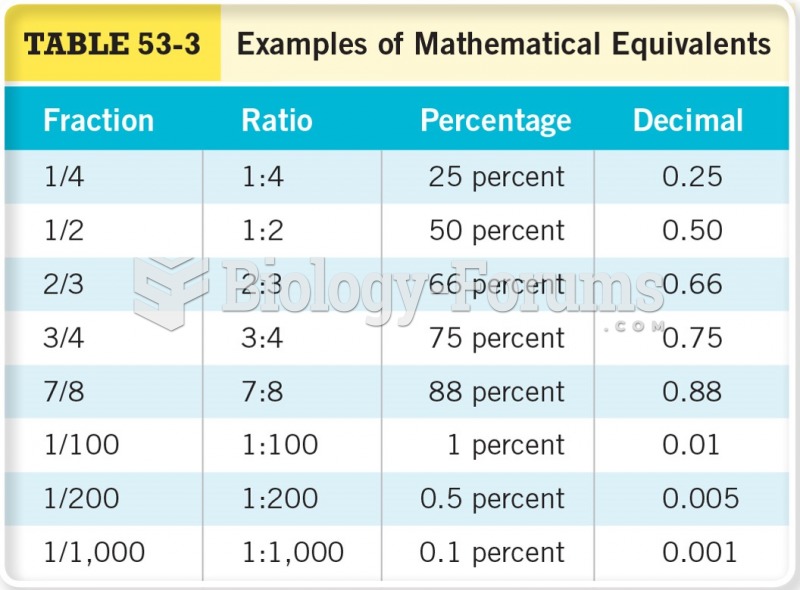This topic contains a solution. Click here to go to the answer
|
|
|
Did you know?
The average older adult in the United States takes five prescription drugs per day. Half of these drugs contain a sedative. Alcohol should therefore be avoided by most senior citizens because of the dangerous interactions between alcohol and sedatives.
Did you know?
There are more sensory neurons in the tongue than in any other part of the body.
Did you know?
Approximately 25% of all reported medication errors result from some kind of name confusion.
Did you know?
Pope Sylvester II tried to introduce Arabic numbers into Europe between the years 999 and 1003, but their use did not catch on for a few more centuries, and Roman numerals continued to be the primary number system.
Did you know?
Earwax has antimicrobial properties that reduce the viability of bacteria and fungus in the human ear.







